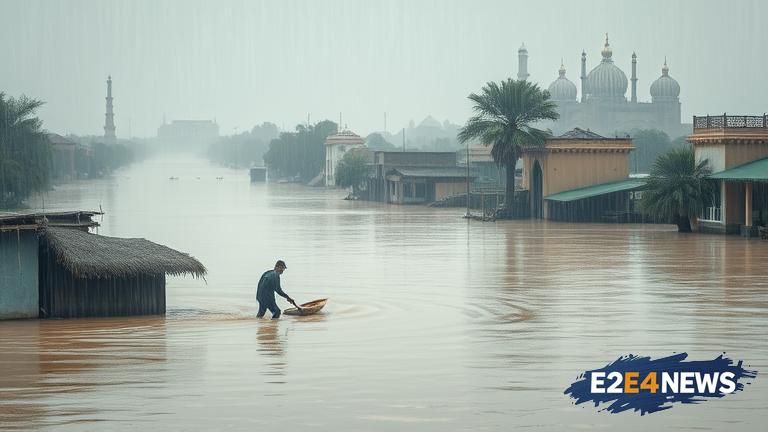Pakistan is currently experiencing one of the worst humanitarian crises in its history, with heavy rains and floods affecting over 30 million people across the country. The floods have caused widespread destruction, with thousands of homes, schools, and hospitals being destroyed or damaged. The government has declared a state of emergency and is working to provide aid to those affected. However, the situation remains dire, with many people still stranded and in need of assistance. The floods have also had a significant impact on the country’s infrastructure, with many roads and bridges being destroyed or damaged. The agricultural sector has also been severely affected, with crops being destroyed and livestock being killed. The government has estimated that the floods have caused over $10 billion in damages. The international community has pledged to provide aid to Pakistan, with many countries sending teams to assist with the relief efforts. The United Nations has also launched an appeal for $160 million to support the relief efforts. Despite the efforts of the government and the international community, many people are still in need of assistance. The floods have also raised concerns about the country’s ability to respond to natural disasters. The government has been criticized for its slow response to the crisis, with many people feeling that more could have been done to prevent the devastation. The floods have also highlighted the need for more investment in disaster prevention and preparedness. The country’s infrastructure is in need of significant upgrades, with many of its roads, bridges, and buildings being unable to withstand the heavy rains. The government has promised to rebuild and restore the affected areas, but it will be a long and difficult process. The floods have also had a significant impact on the country’s economy, with many businesses being forced to close. The tourism industry has also been affected, with many tourists canceling their trips to the country. The government has estimated that the floods will have a significant impact on the country’s GDP, with some estimates suggesting that it could be as high as 2%. The floods have also raised concerns about the country’s food security, with many crops being destroyed. The government has promised to provide support to farmers, but it will be a long and difficult process. The international community has pledged to provide aid to Pakistan, but more needs to be done to support the country. The floods have also highlighted the need for more investment in climate change mitigation and adaptation. The country is vulnerable to the impacts of climate change, and more needs to be done to reduce its carbon footprint. The government has promised to take action to reduce the country’s carbon footprint, but it will be a long and difficult process. The floods have also raised concerns about the country’s ability to respond to future natural disasters. The government has promised to invest in disaster prevention and preparedness, but more needs to be done to support the country. The international community has pledged to provide aid to Pakistan, but more needs to be done to support the country in the long term.
